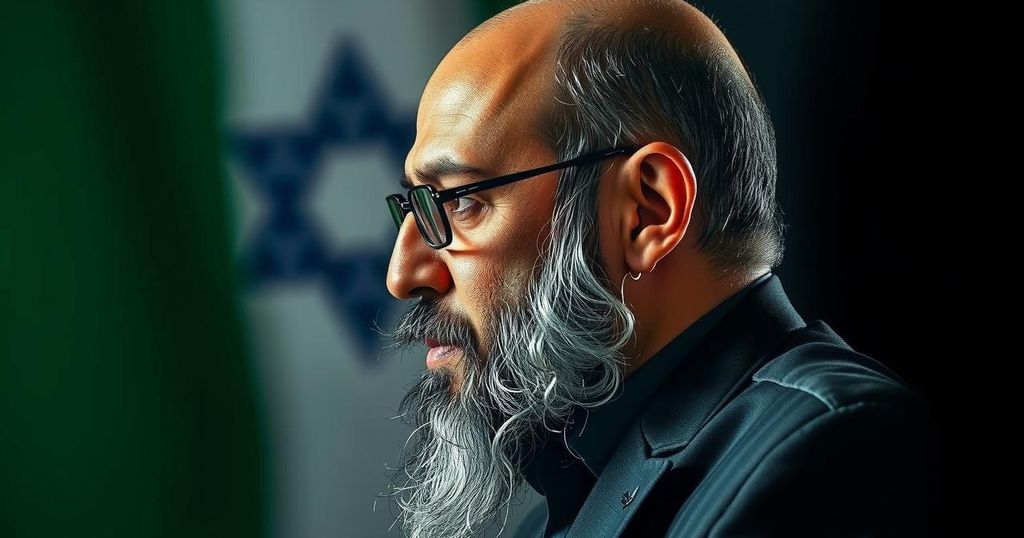Understanding the Impact of Yahya Sinwar’s Death on the Hamas-Israel Conflict

Israel has confirmed the death of Yahya Sinwar, head of Hamas’ political bureau, recognized as the architect of the October 7 attack on Israel. His assassination is deemed a major development in the ongoing conflict, potentially altering the trajectory of hostilities. Sinwar had previously been labeled a global terrorist and had a history of violent conflict with Israel. Analysts note the decentralized nature of Hamas’s leadership, suggesting that while Sinwar’s death is significant, the group has other power centers. Following his death, concerns about escalating violence and humanitarian crises have intensified.
Yahya Sinwar, the 62-year-old leader of Hamas’ political bureau, was confirmed killed by Israeli forces Thursday. His death is seen as a pivotal moment in the ongoing conflict between Israel and Hamas, following the militant group’s attack on Israel on October 7, 2023. Prior to this incident, the Israeli Defense Forces (IDF) indicated they were assessing whether Sinwar was one of three militants killed in a recent operation in Gaza. Later on, the IDF officially stated that Sinwar had indeed been eliminated. U.S. officials have regarded Sinwar’s demise as a potentially transformative event, suggesting that it could lead to the resolution of hostilities between Israel and Hamas. Sinwar had recently ascended to the leadership of Hamas following the killing of Ismail Haniyeh in July, which Hamas attributed to Israeli actions. Sinwar has been characterized by Israeli officials as a key strategist behind the October 7 attack. In the past, Sinwar was sentenced to four life terms for the abduction and murder of Israeli soldiers in the late 1980s, serving time in an Israeli prison before his release in a prisoner swap in 2011. After his liberation, he played a prominent role in various conflicts with Israel, including the 11-day tumult of May 2021, during which extensive rocket fire from Hamas was met with Israeli airstrikes in Gaza. The U.S. State Department designated Sinwar as a global terrorist in 2015, and he has been sanctioned by the United Kingdom and France as well. Elected as the leader of Hamas in Gaza in 2017, his re-election in 2021 reflected a hardliner approach, diverging from the more moderate stances previously suggested. Sinwar had been critical of Mahmoud Abbas, the leader of the rival Fatah party, declaring intentions to intensify resistance efforts in the West Bank. Despite being recognized as Hamas’ foremost authority, analysts indicate that the organization operates with a decentralized structure, meaning Sinwar was one of several influential figures involved in planning the October 7 attack. This incident has catalyzed the current warfare within Gaza, significantly impacting civilian casualties on both sides. The toll includes approximately 1,100 Israeli deaths during the attack, while Gaza’s health ministry reports over 41,500 casualties attributed to the conflict since the onset. As fighting persists despite international calls for a ceasefire and worsening humanitarian conditions in Gaza, the U.S. has expressed increasing concern about military escalation, particularly with the support of Iran for groups like Hamas and Hezbollah. Interestingly, in a past interview, Sinwar conveyed skepticism about the benefits of a new war with Israel, suggesting that Hamas would be open to negotiations contingent on the lifting of the blockade imposed on Gaza since 2007. Reports indicated that prior to the October 7 assault, there was an impression that he and other Hamas leaders were not inclined towards further conflict, a view now reconsidered. Sinwar is the latest in a line of high-ranking Hamas and Hezbollah leaders assassinated by Israel, continuing a pattern of targeted operations against figures deemed instrumental in perpetuating hostilities.
In the context of the ongoing Israeli-Palestinian conflict, Yahya Sinwar’s leadership of Hamas represents a critical component of the militant group’s strategy and operations. Since its inception in the late 1980s, Hamas has maintained a complex relationship with both Israel and Palestinian Authority factions, characterized by violent confrontations and attempts at political negotiation. Sinwar’s leadership has been marked by a commitment to armed resistance against Israel and efforts to consolidate control over Gaza. As conflicts escalated, especially after the significant attacks on October 7, 2023, Hamas has faced increased military pressure from Israel, often resulting in substantial casualties and public outcry for humanitarian intervention. The assassination of key leaders like Sinwar is seen as a tactical maneuver by Israel aimed at crippling Hamas’s operational capabilities, yet it also prompts discussions about the fractured state of leadership within the organization and its future direction.
In summary, the reported death of Yahya Sinwar, a prominent Hamas leader, represents a significant development in the ongoing conflict between Israel and the militant group. His leadership, marred by accusations of terrorism and a commitment to armed conflict, has shaped Hamas’s strategies in response to Israeli incursions. As tensions mount and civilian casualties rise, the implications of his assassination will likely reverberate through the landscape of Palestinian politics and Israeli security as both sides grapple with the evolving dynamics of warfare and resistance in the region.
Original Source: www.forbes.com








